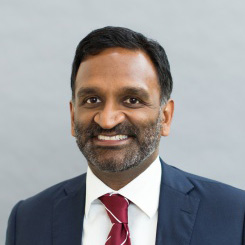
The official release of Pope Benedict’s social encyclical Caritas in Veritate took place this morning at the Holy See Press Office in Rome.
There were four speakers at the presentation: Cardinal Renato Raffaele Martino, President of the Pontifical Council for Justice and Peace (PCJP), Cardinal Paul Josef Cordes, President of the Pontifical Council Cor Unum, Archbishop Giampaolo Crepaldi, the newly-appointed bishop of Trieste and former Secretary of PCJP, and Professor Stefano Zamagni, Professor of Economics at the University of Bologna and a consultor for PCJP.
All of the formal presentations in Italian can be found here.
It’s well-known but not often publicly revealed that the presenters of an encyclical were usually close collaborators with the pope on the encyclical, so it’s often worth listening to their explanations and more importantly their answers to the journalists’ questions.
I won’t provide a blow-by-blow account, but here is my summary of more interesting issues raised at the press conference:
– Both Cardinal Martino and Archbishop Crepaldi spoke of the ideology or problem of technique as one of the new, main themes of the encyclical.
– Cardinal Cordes denied that the encyclical or the Church proposes a “third way” between capitalism or socialism, as the Church has no technical model to offer. (This leads one to wonder if a moral critique can be made without an adequate technical understanding, as the former Cardinal Ratzinger once wrote.)
– Professor Zamagni noted the distinction between a market economy and capitalism (which was also made in Pope John Paul II’s Centesimus Annus, n. 42), adding that the Franciscans had a form of market economy in Italy long before the term “capitalism”, with its Marxist ideological connotations, ever existed.
– There were several questions about this very important distinction, with one French journalist noting an “anti-liberal, anti-capitalist” slant to the encyclical and another asking about the role of profit in a pre-capitalist, market economy. It was encouraging to hear Professor Zamagni deny the first and Cardinal Martino speak positively about the second.
– Professor Zamagni also addressed the nature of the ethical basis of the encyclical, stating that not all ethical systems are the same. The encyclical is based on “a virtue ethics that comes from Aristotle and Aquinas”.
– The most difficult questions concerned the nature of a “world political authority” mentioned in n. 67 of the encyclical, which refers to Pope John XXIII’s Pacem in Terris. Is this authority the same as the United Nations? Why would the Holy See, which has fought tooth-and-nail to protect the sanctity of life, marriage and the family at the UN, think such an authority would be a good thing? Would giving “real teeth” to the UN be a good idea? And why would Prof. Zamagni call for a Security Council for social and economic affairs, when the actual Security Council is widely regarded to be an ineffective way of dealing with international peace and security?
The answers to these questions usually referred to previous papal encyclicals, the difference between government (or a supra-state) and governance, which would presumably respect subsidiarity better than other supra-national entities such as the European Union. Others answered that the UN is the only game in town and the Holy See has to work with it.
I know, I know. These aren’t very satisfying answers to me either, and I used to work for the Holy See at the UN! Well, maybe Pope Benedict’s next social encyclical can take up issues of sovereignty and international relations. For now, we should carefully read and digest Caritas in Veritate.

